Keyword search: 176 records shown
| Course categorySort by Course category Ascending | Course nameSort by Course name Ascending | Course summarySort by Course summary Ascending | New CourseSort by New Course Descending Descending |
|---|---|---|---|
| Video library | The Ageing Eye: Adapting the Routine - Domiciliary eyecare | No CPD Points
Using expert advice and insights, this course guides optometrists through all aspects of carrying out domiciliary eye examinations, including useful facts and tips on planning and arranging visits, effective communication, legal requirements, necessary equipment and adapting clinical techniques to meet the needs of patients being examined in their own homes or care homes. Topics: Legal, Care home, Dementia, Communication, Safeguarding, Lighting, Disability, Record keeping, Visual assessment, Equipment, GOS. | No |
| Video library | The Ageing Eye: Refractive correction for older patients |
This programme looks at the various refractive correction options available for presbyopes. Through a mix of filmed patient scenarios and expert advice four areas are considered: spectacle frames and lenses, contact lenses, correction with intra-ocular lenses, and managing presbyopic patients following refractive laser surgery. Topics: Ageing eye, Contact lenses, Spectacles, Dispensing, Refractive surgery, Intraocular lenses, Multifocal, Lenses, Tints, Presbyope, Frames, IOLs, Driving, Cataract. | No |
| Video library | The Ageing Eye: Charles Bonnet Syndrome |
A comprehensive overview of Charles Bonnet syndrome, based on the latest research. Includes advice on identifying the condition, addressing the topic with patients, appropriate management steps and what can be done to help sufferers. Topics: AMD, Ageing eye, Low vision, Dementia, Hallucinations, Psychology, Vision loss, Dominic ffytche, Visual impairment. | No |
| Video library | Developing Clinical Skills | No CPD Points
This programme looks at the application of three advanced clinical investigative techniques and shows how to undertake and interpret van Herick technique, the use of slit lamp and indirect lenses for assessment of the fundus and gonioscopy. Topics: Tonometry, Slit lamp, Gonioscopy, Volk, BIO, van Herick, IOP, Anaesthetic, Dilation, Goldmann, Glaucoma. Area of interest: MECS | No |
| Video library | The Ageing Eye: Adapting the Routine - Community practice | 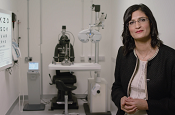 No CPD Points
In this programme, experts look at how to adapt the routine eye check when examining elderly patients including communication, ocular examination and refraction. It provides guidance on techniques to use and how best to modify an examination to ensure that elderly patients get the highest level of care and their individual needs are addressed. Topics: Communication, Ocular examination, Refraction, Binocular vision, Charts, Pupils, Visual fields, Legal, Visual assessment, Retinoscopy, Ophthalmoscopy, LogMAR, Contrast sensitivity, Lighting. | No |
| Case studies for peer review | Soft Toric Lens Fitting |
This case includes two videos and discusses corneal astigmatism, slit lamp examination results and fitting of soft toric contact lenses. Topics: Astigmatism, Soft toric lenses, RGP, RCL, Slit lamp, Toric, Aftercare, Bitoric, Gas permeable, Keratometry, Contact lenses. | No |
| Case studies for peer review | Rigid Corneal Lens (RCL) Fitting for Astigmatic Patients |
This case includes three videos and discusses corneal astigmatism, the fitting of spherical and toric RC lenses, aftercare and staining. Topics: Astigmatism, Soft toric lenses, RGP, Slit lamp, Toric, Aftercare, Bitoric, Gas permeable, Keratometry, Contact lenses, RCL. | No |
| Video library | Contact Lenses: Core Skills - Fitting and aftercare |
| No |
| Case studies for peer review | The Ageing Eye: Visual Impairment - Elizabeth |
In this session, delegates are asked to watch a short video that outlines a case scenario of a 67-year-old patient with cataracts and macula changes. Topics: AMD, Cataracts, Communication, Depression, Electronic aids, Low vision aids, Management plans, Mental health. | No |
| Case studies for peer review | The Ageing Eye: Visual Impairment - Moira |
In this session, delegates are asked to watch a short video that outlines a case scenario of an 81-year-old patient with macula degeneration. Topics: AMD, Charles Bonnet, Communication, Depression, Electronic aids, Lighting, Low vision aids, Management plans, Mental health. | No |
| Case studies for peer review | The Ageing Eye: Visual Impairment - Leonard |
In this session, delegates are asked to watch a short video that outlines a case scenario of a 93-year-old patient with glaucoma and severe sight impairment. Topics: Electronic aids, Falls, Field loss, Glaucoma, Low vision aids, Management plans, Mobility. | No |
| Case studies for peer review | The Ageing Eye: Visual Impairment - Ray |
In this session, delegates are asked to watch a short video that outlines a case scenario of a 60-year-old patient who suffered a stroke two months ago. Topics: Communication, Depression, Electronic aids, Field loss, Low vision aids, Management plans, Mental health, Mobility, Stroke. | No |
| Audio – Ocular disease and management | Sound Optometry: Episode 2 - Papilloedema |
In this episdoe, we hear about a clinical scenario where papilloedema was detected in a young girl. Michelle Hanratty then discusses the topic of papilloedema, its presentation, causes and potential treatment with consultant neuro-ophthalmologist Naz Raoof. Topics: Communication, Neuro-ophthalmology, Optic disc anomalies, Papilloedema, OCT. Area of interest: MECS. | No |
| Audio – Ocular disease and management | Sound Optometry: Episode 1 - Ocular Allergies |
   
In this episode, we explore how patients with ocular allergy seek clinical advice and treatment. We hear from a community pharmacist, often the first port of call for allergy sufferers, before discussing ocular allergy in more detail with Dr Peter Frampton. Topics: Allergic conjunctivitis, Seasonal and perennial allergy, Topical medications and contact lenses, Effective history taking, Remote consultations, Allergy vs adverse reaction. Area of interest: Independent prescribing. | No |
| Audio – Ocular disease and management | Sound Optometry: Episode 3 - Flashes and Floaters |

In this episode, Michelle is joined by Consultant Vitreo-Retinal Surgeon Stephen Lash and Clinical and Regulatory Advisor for the Association of Optometrists (AOP) Roshni Kanabar to discuss how to manage suspected retinal detachment. Topics: Retinal tear, Retinal detachment, Flashes and floaters, Posterior vitreous detachment, Record keeping, Communication, Referrals. | No |
| Audio – Clinical assessment | Sound Optometry: Episode 4 - Binocular Vision |
In this episode, we hear about a scenario in which a sixth nerve palsy was detected in an urgent remote consultation with an elderly patient. We also explore methods that optometrists have at their disposal to detect and manage binocular vision problems in children. Topics: Binocular vision assessment, Examining children, Amblyopia, Strabismus, Squint, Incommitant, Convergence insufficiency, Exercises, Ocular Motility, Stereopsis, Prisms, Double vision, Orthoptics, Referrals. | No |
| Audio – Ocular disease and management | Sound Optometry: Episode 5 - Acute Red Eye |
In this episode, optometrist Robert Longhurst discusses the increased incidence of viral conjunctivitis-related red eye during the COVID-19 lockdown of Spring 2020. Consultant Ophthalmologist David Lockington explores the investigation and management of acute red eye. Topics: Red eye, Viral conjunctivitis, Microbial keratitis, Contact lens complications, Independent prescribing, Emergency referrals. | No |
| Audio – Ocular disease and management | Sound Optometry: Episode 6 - Medical Retina |
In this episode, Michelle Hanratty explores the referral, investigation and management of wet age-related macular degeneration (AMD) with consultant ophthalmologist Rupal Morjaria. Topics: Medical retina, Age-related macular degeneration, Referrals, Retinitis pigmentosa, Patient communication, Gene therapy. | No |
| Audio – Professional matters | Sound Optometry: Episode 7 - Speaking Up |
In this episode, Michelle discusses the concept of Speaking up with David Hewlett, Group Director at FODO. We also hear from Julie Breen, Freedom to Speak Guardian for Tees LOC, who outlines her role within primary care optometry. Topics: Freedom to speak up, Speaking up, Raising concerns, Whistleblowing, GOC Standards of Practice. | No |
| Audio – Ocular disease and management | Sound Optometry: Episode 8 - Cataract, A tale of two surgeons |
In this episode, Michelle speaks with consultant ophthalmologist Arijit Mitra about his personal experience with cataract. We also hear from Ajai Tyagi, who shares his insights from a surgical perspective. The episode wraps up with valuable advice from both surgeons on referral practices and postoperative care for cataract patients. Topics: Cataract, Referrals, Patient communication, Monovision. | No |
| Audio – Ocular disease and management | Sound Optometry: Episode 9 - Suspicious Discs: When is a disc a disc at risk? |
In this episode, we explore a clinical case in which idiopathic intracranial hypertension resulted in severe visual symptoms and bilateral optic disc swelling. Michelle then discusses the key features of papilloedema, including its presentation, underlying causes and differential diagnoses, with neuro-ophthalmologist Dr Denize Atan. The second part of the episode focuses on the unilateral causes of optic disc swelling, offering a deeper understanding of how they differ from bilateral presentations. Topics: Optic disc drusen, Optic disc swelling, Optic neuritis, Optic neuropathy, Papilloedema, Referrals. | No |
| Expired | Safeguarding Children for Optometrists Level 2 (Certificates achieved - 05/01/22 to 20/01/25) | This accredited Level 2 e-learning Safeguarding course expired on 20 January 2025. If you have completed this course, you can print your certificate here.This course has been replaced with our Safeguarding Children for Optometrists Level 2 course, reissued in January 2025. | No |
| Expired | Safeguarding Adults for Optometrists Level 2 (Certificates achieved - 05/01/22 to 20/01/25) | This accredited Level 2 e-learning Safeguarding course expired on 20 January 2025. If you have completed this course, you can print your certificate here.This course has been replaced with our Safeguarding Adults for Optometrists Level 2 course, reissued in January 2025. | No |
| Audio – Clinical assessment | Sound Optometry: Episode 11 - Myopia Management: Active not passive | No CPD Points Domains: Clinical practice, Professionalism
In this episode, we hear from both parent and child as they share their experiences with myopia management using soft contact lenses. Michelle Hanratty then speaks with optometrist Kathryn Webber about best practices in myopia management. Together, they discuss how to identify suitable candidates and offer practical advice on how to communicate the potential benefits of myopia management to patients and their families. Topics: Myopia management, Risk factors for myopia, Communication, Fitting contact lenses in children, Pathological myopia. | No |
| Audio – Clinical assessment | Sound Optometry: Episode 12 - Anterior Ocular Lesions |
Domains: Clinical practice, Communication
In this episode, we hear from a patient diagnosed with conjunctival melanoma, before Michelle Hanratty speaks with Professor Heinrich Heimann about lesions of the ocular surface and anterior chamber. Their discussion explores how to recognise key signs, identify associated risk factors and approach the investigation, management and treatment of affected patients. Topics: Conjunctival lesions, Uveal lesions, Ocular tumours, Referrals. | No |
| Expired | Cataract: Part 1 - Introduction (Non-interactive) | This course expired on 31 December 2025. If you have completed this course, you can print your certificate here. This course has been replaced with our Cataract: Part 1 - Introduction course, issued in January 2026. | No |
| Expired | Cataract: Part 2 - Management and treatment (Non-interactive) | This course expired on 31 December 2025. If you have completed this course, you can print your certificate here. This course has been replaced with our Cataract: Part 2 - Management and treatment course, reissued in January 2026. | No |
| Expired | Cataract: Part 3 - Post-treatment (Non-interactive) | This course expired on 31 December 2025. If you have completed this course, you can print your certificate here. This course has been replaced with our Cataract: Part 3 - Post-treatment course, reissued in January 2026. | No |
| Video library | Ocular Surface and Anterior Chamber Lesions in Daily Practice (May 2021 Webinar) | 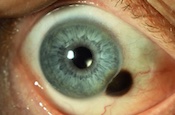 No CPD Points Domains: Clinical practice, Communication
This recorded lecture by consultant ophthalmic surgeon, Professor Heinrich Heimann provides an overview of the most important malignancies and pre-malignancies of the ocular surface and anterior chamber and how to spot them. Topics: Melanoma, Lymphoma, Naevus, Tumour, Conjunctiva, Ciliary body, Iris, Anterior chamber, Pigment, Cyst, Metastisis, Papilloma, Squamous cell. | No |
| Video library | Retinal and Choroidal Lesions in Daily Practice (October 2020 Webinar) | 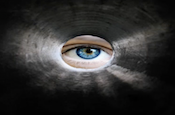 No CPD Points Domains: Clinical practice, Communication
This lecture by consultant ophthalmic surgeon, Professor Heinrich Heimann, will improve optometrists’ skills in differentiating between benign and suspicious fundus lesions that require monitoring or referral. It focuses on the more common causes including choroidal naevus, choroidal melanoma and CHRPE and includes imaging, referral and monitoring strategies. Topics: Fundus, Retina, Pigmented, Malignant, Tumour, Choroidal, Melanoma, Naevi, CHRPE, Vortex vein ampulla, Peripheral disciform, OCT, Referral, Oncology. | No |
| Video library | Binocular Vision |
No CPD Points Domains: Clinical practice, Communication
Binocular Vision provides a step-by-step practical guide to the various techniques required in practice to assess the binocular status of patients. The course also explores the appropriate management for a broad range of anomalies. Topics: Children, Orthoptics, Amblyopia, Strabismus, Squint, Incommitent, Commitent, Exercises, Motility, Heterophoria, Stereopsis, Prisms, Newly qualified. Area of interest: MECS | No |
| Video library | Effective Remote Patient Consultations (June 2020 Webinar) |  No CPD Points Domains: Communication, Leadership & Accountability
This filmed lecture, which initially took place as a webinar during the Covid 19 pandemic, will increase your confidence in examining patients remotely, ensuring they are managed safely and referred when required. Topics: Red eye, Record keeping, Triage, Referral, Acute presentation, Ocular disease, Reduced vision, Virtual. | No |
| Video library | Acute Red Eye in Contact Lens Wearers (October 2019 Webinar) | 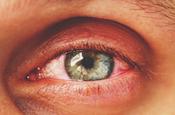 No CPD Points Domains: Clinical practice, Professionalism
This lecture, by consultant ophthalmologist Damian Lake, covers different acute red eye conditions particularly in contact lens wearers. It discusses the management of both those that can be treated in practice, and others, such as infective causes, where urgent referral to the Hospital Eye Service is required. Topics: Contact lenses, Ulcers, Microbial keratitis, Ocular allergy, Viral, Bacterial, Fungal, Allergic, Infiltrate, Hygiene, Infection, Acanthamoeba, Abrasion. | No |
| Video library | The Young Eye: Embryology, Part 1 - Genetics and first trimester |
No CPD Points Domains: Clinical practice
The first of two programmes discussing embryology and the developing eye, this course looks at genetics and inheritance of a range of eye diseases, as well as the first three months of gestation and how external and internal influence may trigger eye conditions. Topics: Choroid, Ciliary body, Coloboma, Colour vision defect, Congenital, Rubella, Cataract, Lens, DNA, Dominant, Embryo, Epithelium, Genetics, Glaucoma, Hyaloid artery, Inheritance, Iris, Meiosis, Mitochondrial, Multifactorial, Mutation, Myopia, RNA, Recessive, Retinoblastoma, Sclera, Toxoplasmosis, X-linked, Y-shaped suture, Zika virus, Young eye series. | No |
| Video library | The Young Eye: Embryology, Part 2 - Second trimester to birth |
No CPD Points Domains: Clinical practice, Communication
The second of two programmes discussing embryology and the developing eye, this course looks at the final six months of gestation, the birth process and the early period post-partum, and how external and internal influence may trigger eye diseases. Topics: Binocularity, Asphyxia, Children, Congenital, Glaucoma, Cranial nerves, Down syndrome, Duane syndrome, Emmetropisation, Extraocular muscles, Fibrosis, Foetal alcohol syndrome, Gestational diabetes, Horner’s syndrome, Hydrocephalus, Keratoconus, Leukocoria, Oculomotor disorders, Ophthalmoplegia, Pupil, Reflex test, Retinal detachment, Retinopathy of prematurity, Risk factors, Sixth nerve palsy, Smoking, Spina bifida, Stereopsis, Trisomy 21, UV, Visual development, Vitamin A deficiency, Young eye series. | No |
| Audio – Ocular disease and management | Sound Optometry: Episode 10 - Keratoconus: Screening, surgery and saving sight |
No CPD Points Domains: Clinical practice, Communication
In this episode, Michelle Hanratty interviews optometrist Yahya Vali on the detection of keratoconus in routine clinical practice and consultant ophthalmologist Damian Lake on referral strategies and treatment approaches, highlighting the critical importance of early diagnosis. Topics: Keratoconus, Crosslinking, Corneal transplant, Retinoscopy, Keratometry, Referrals, Corneal Topography. | No |
| Audio – Professional matters | Sound Optometry: Episode 13 - Infection Control |
Domains: Clinical practice, Leadership and Accountability
In this episode, Michelle Hanratty discusses the two-way risk of infection in optometric practice with Dr Conor Meehan. The conversation is followed by a real-life case study of a workplace-acquired ocular infection, presented by ophthalmologist Arijit Mitra, who highlights the serious consequences of lapses in infection prevention and control. Topics: Infection prevention and control, Hand hygiene, Reuse of instruments, Contact lenses. | No |
| Audio – Ocular disease and management | Sound Optometry: Episode 14 - Glaucoma |
Domains: Clinical practice, Professionalism
In this episode, Michelle Hanratty discusses the risk of glaucoma going undetected in patients who have undergone laser vision correction, with consultant ophthalmologist Imran Masood. Hospital optometrist Paddy Gunn then explains how to manage borderline cases to ensure appropriate referral, and how to reassure patients who have missed routine glaucoma monitoring appointments during the COVID-19 pandemic. Topics: Glaucoma, Referrals, Intraocular pressure, Laser vision correction. | No |
| Video library | Contact Lenses: Fitting Astigmatic Patients - Soft lenses |
Domains: Clinical practice, Communication
The programme is split into two parts. This first part covers the skills required to examine and fit astigmatic patients with soft contact lenses, including toric fitting tips and problem solving. Topics: Astigmatism, Soft lenses, Slit lamp, Toric, Aftercare, Keratometry, Contact lenses, Prism ballast, Stabilisation. | No |
| Video library | Contact Lenses: Fitting Astigmatic Patients - RGP |
Domains: Clinical practice, Communication
The programme is split into two parts. The second part covers skills required to examine and fit astigmatic patients with rigid gas permeable (RGP) lenses, as well as the aftercare, management and problem-solving of those patients. Topics: Astigmatism, RGP lenses, Slit lamp, Toric, Aftercare, Bitoric, Complications, Gas permeable, Staining, Contact lenses. | No |
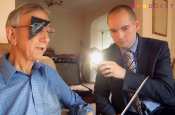
 No CPD Points
No CPD Points No CPD Points
No CPD Points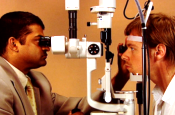
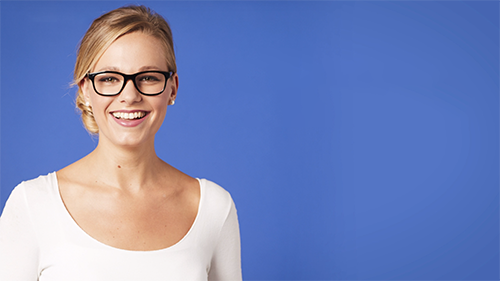

 No CPD Points
No CPD Points



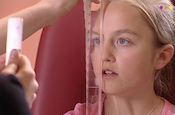


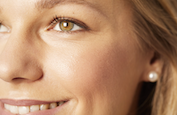 No CPD Points
No CPD Points No CPD Points
No CPD Points